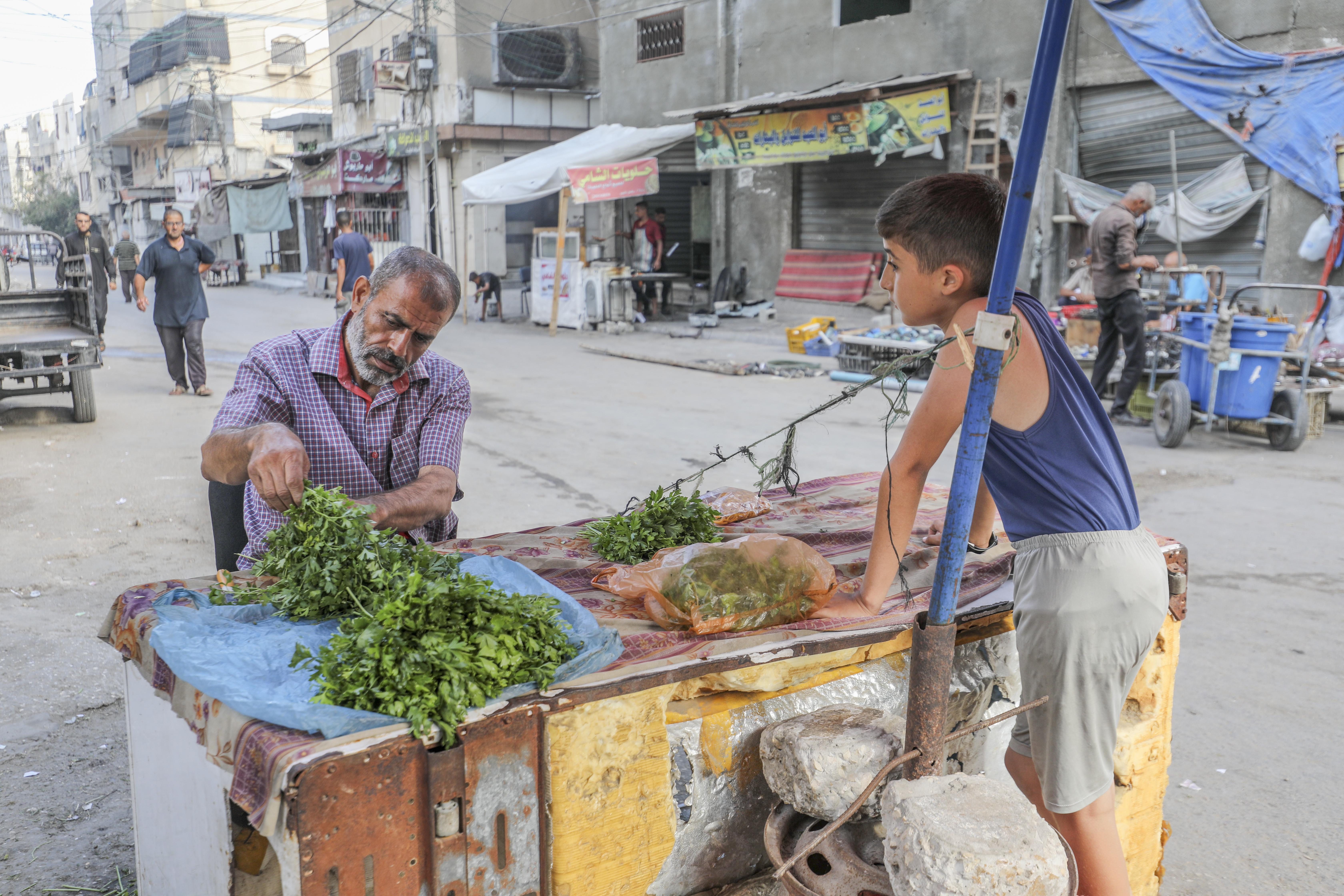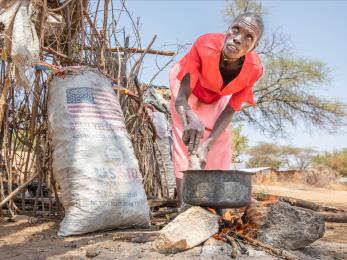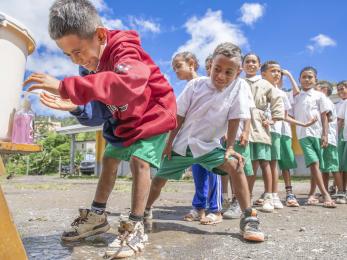How farm school is helping Salma beat hunger
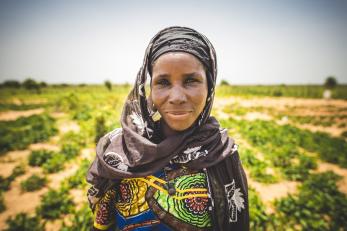
It’s before dawn in the small village of Magaria Tounkour, Niger, and Salma has already been prodded awake by the youngest of her five children.
The sandy floor of their low-slung mud hut feels cool for now, but Salma knows temperatures will climb towards 40°C soon enough. She rises and puts on a headscarf, overhearing her neighbours moving about in the rows of nearby huts as she does.
It isn’t long before her children are outside laughing and playing. As the sun takes its first peek over the horizon, Salma gazes out on the village and plots her next move. They will need to eat soon.
Niger sits squarely in the Sahel region, a million-square-mile geographic band that stretches the width of Africa, from the Atlantic Ocean to the Red Sea. It’s where the hot, arid plains of the north meet the green savannahs to the south, and it’s home to some of the world’s most unpredictable weather.
A nightmare combination of chronic drought, seasonal flooding and other disasters regularly lay waste to already-insufficient crops in this region, making it that much more difficult for farmers to produce the food they need.
These unstable weather patterns have given rise to an experience Salma is all too familiar with — the hunger gap. It's the challenge she's faced with now: the food stores from last year’s harvest are diminished and the new crops are not yet ready to reap. During times like this, hunger sets in, sometimes for months at a time.
The lack of food makes it difficult for families — and entire communities — to stay healthy. In this region, the child malnutrition rate soars at more than 60 per cent, one of the highest in the country.
Salma watches her own children play. She’s learned to live with the dull ache of hunger but can’t shake the worry that her kids feel it as well.
To support the family, her husband left to find work in Zinder, Niger’s second largest city. He sends cash back to them, but often it’s not enough. Meanwhile, the responsibility for their five children falls on Salma. And each day brings a fresh test of her strength and endurance.
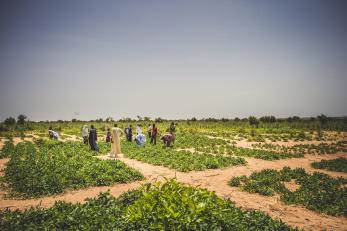
Yet Salma has already taken the first steps to overcoming the hunger gap, not only for her children but also for the entire village. She has joined the Mercy Corps farmer field school.
Here, with other villagers, she is learning crucial agricultural skills to increase the amount of millet, beans and greens they can grow, which helps them feed their families year-round.
Through Mercy Corps, Salma has seen firsthand how small improvements can lead to bigger harvests — and less time between meals.
“[In the past] we used a lot of space between one plant and another. [Now] we’re planting them closer together, and we’re getting a lot of good harvest with this procedure,” Salma says. “It’s successful.”
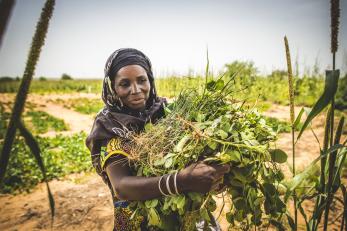
Like the other village women, Salma is wrapped in a colourful, kaleidoscopic boubou, a flowing robe common in Niger. She glides over the sandy paths toward the field school, her image vivid against the brown village huts. The heat is rising, and the scent of livestock and cooking smoke lingers as the villagers assemble for their farm training.
About two dozen men and women, ranging from teenagers to town elders, gather at the school: green plots of land that stretch over a hundred yards in all directions. Without a drop of rain in the last few weeks, stalks of millet, bean vines and leafy greens droop under the relentless sun.
Still, Zakaria, a Mercy Corps team member who oversees the field school, champions the strides villagers here have made by improving planting methods, using fertilisers and experimenting with faster-growing seeds.
Mercy Corps strives to provide families around the world with the tools they need to beat their most-threatening challenges and build better lives. Over the past year in Niger alone, we’ve connected 32,000 people to stronger livelihoods, enrolled 600 girls in school and helped over 15,000 farmers, like Salma, produce more food.
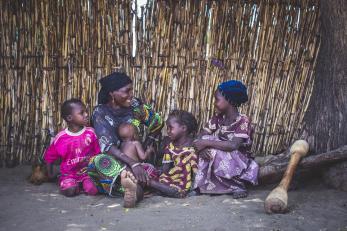
Salma can sense the coming of the sun’s daily assault, but she’s hopeful, understanding the immediate impact the field school lessons are having on her family and her village.
The new techniques they're learning allow them to better cope with food shortages — and work toward the day when they don't have to miss a meal at all.
She gathers her children beneath the shade of an Acacia tree, her eyes cautiously surveying the coming harvest. “We have received a very great advantage, and that is a very good and important thing that we can never forget.”
